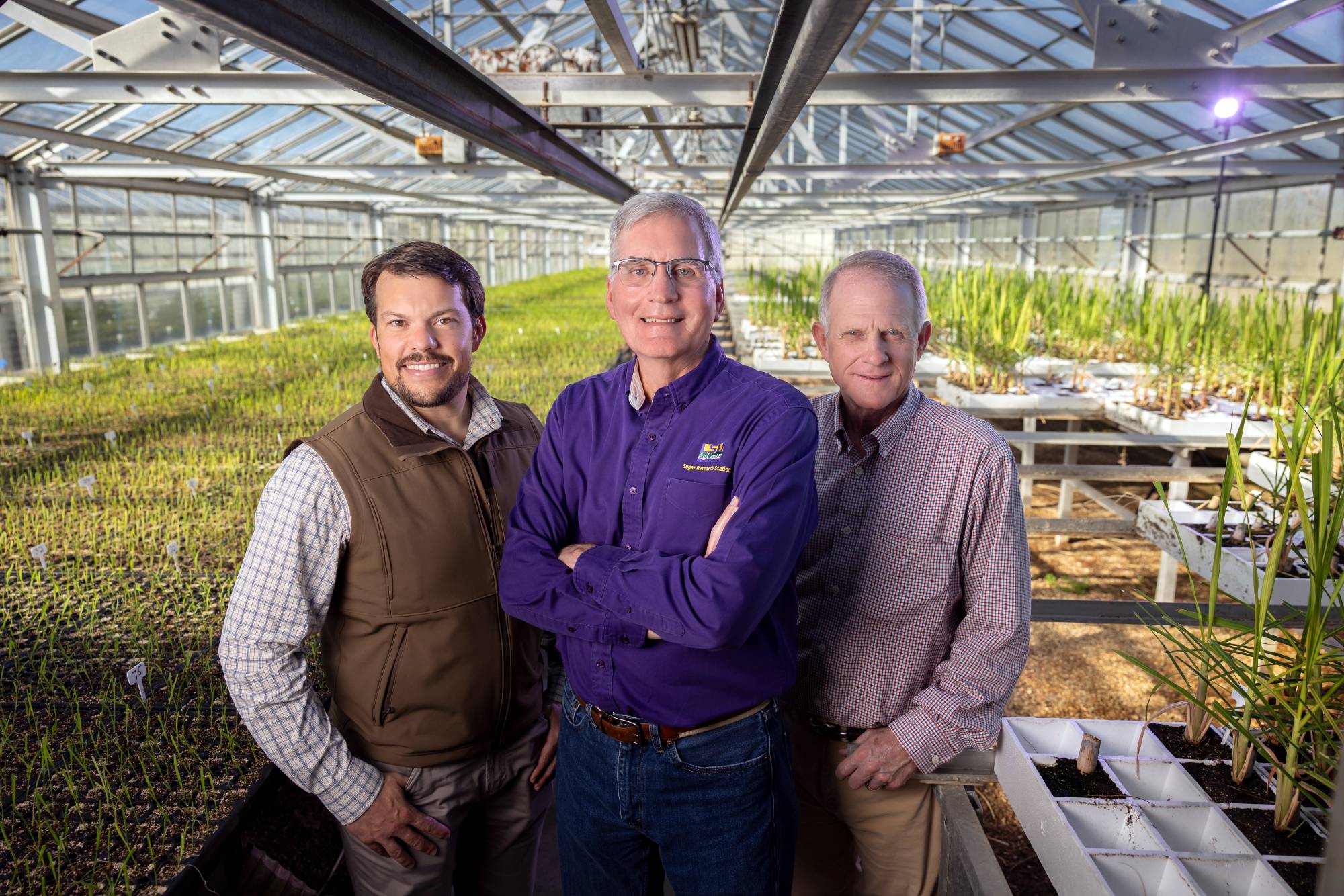Fueling Louisiana’s Sweet Success: How LSU’s Research Keeps the Sugarcane Industry Thriving
April 14, 2025
Louisiana’s sugarcane industry isn’t just a part of the state’s history—it’s a driving force in its economy, generating roughly $4 billion annually and providing jobs across farms, research facilities, and raw sugar factories.

– Photos by Eddy Perez
Sustaining this vital industry requires continuous innovation and a partnership between the LSU AgCenter, the USDA, and the American Sugarcane League plays a pivotal role.
“The research here at St. Gabriel has been paramount in keeping the Louisiana sugar industry competitive,” said Carl Newton, a Louisiana farmer and 1978 LSU Agronomy alum. After nearly five decades in the industry, Newton has seen firsthand how advancements from LSU’s research programs have helped growers like him navigate an ever-changing agricultural landscape.
“Without the breeding program, I'm sure the industry would have collapsed and gone away,” Newton said.
— Video by Grant French
At the core of this work is the LSU AgCenter’s Sugar Research Station in St. Gabriel, where scientists focus on two critical missions: producing high-yield sugarcane varieties and preserving those yields against diseases, pests, and environmental threats.
“Margins on the farm are low, and we don’t have much control over price, but we can control yield,” said Kenneth Gravois, sugarcane extension specialist at LSU AgCenter. “That’s why we conduct top-notch breeding programs, develop plant pathologists to tackle diseases, entomologists to manage insect pests, and weed scientists to control invasive species.”
Without new sugarcane varieties continuously entering the pipeline, the industry would stagnate—or even risk collapse.







“New varieties are critical for the advancement of the industry,” said Atticus Finger, research director at the American Sugarcane League and a 2015 LSU alum.
“It's really what the land grant model should look like. Federal partners and stakeholder partners, and we're accomplishing the land grant mission of improving sugar cane,” said Gravois. “Variety development is not a one-person show by any stretch. You have to build a team, and this is a team of people including plant pathologists, entomologists and agronomists."
“I can tell you the different needs have changed over these years and LSU's been right there, helping with the changes, helping the industry and the communities that these industries support thrive in an ever-changing environment.”
Carl Newton, Louisiana farmer and 1978 LSU Agronomy alum
Newton agrees, likening LSU’s role in the industry to having LSU on speed dial.
“When you take a step back and think about LSU back into the 1880s when the land grant university system was set up, this is what it was supposed to do. And just in my family's history of 60 or 70 years, I can tell you the different needs have changed over these years and LSU's been right there, helping with the changes, helping the industry and the communities that these industries support thrive in an ever-changing environment.”
Beyond the fields and research labs, the impact of LSU’s work is evident every time a consumer picks up a bag of sugar at the grocery store.
“The hard work and dedication that go into producing that bag—both from researchers and family farms—is nothing to take for granted,” Finger noted. “It allows for a safe, sustainable product to remain on the shelf at a consistent price, ensuring consumers always have access to it when they need it.”
Louisiana’s sugarcane industry has stood strong for over 250 years, and with continued investment in science and research, its future remains bright.
“250 years of producing sugar here in Louisiana, and we're still doing it. The future looks quite bright. We have to maintain our scientists and research program to have a fighting chance to compete,” Newton said.
Next Step
LSU's Scholarship First Agenda is helping achieve health, prosperity, and security for Louisiana and the world.


